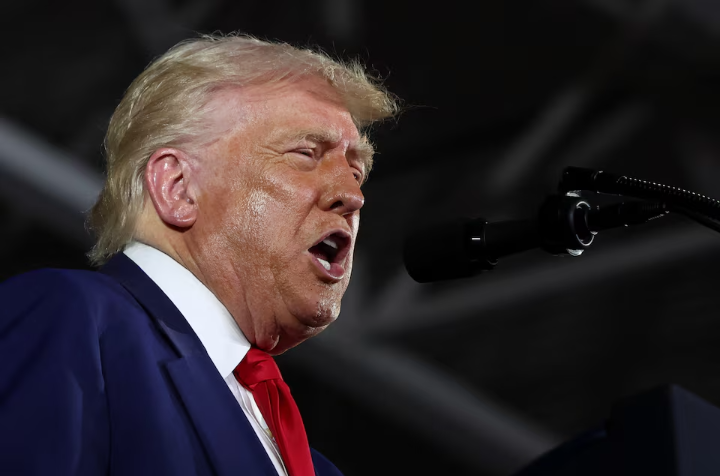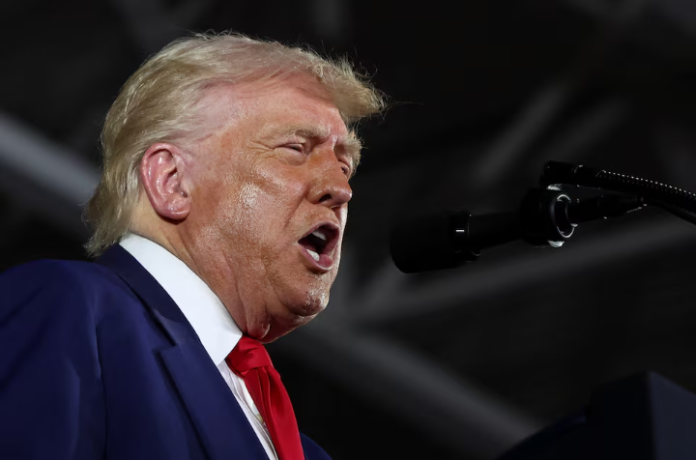As President Donald Trump reaches the 100-day mark of his new term, he’s facing mounting pressure to explain the country’s sudden economic slump. Despite his confident tone and repeated claims of a strong recovery on the horizon, the U.S. economy just recorded its first quarterly contraction in three years — a signal that many economists view as a potential warning sign of an approaching recession.
According to the U.S. Commerce Department, gross domestic product (GDP) shrank in the first quarter of 2025, largely driven by a wave of imports. Businesses rushed to stock up on foreign goods in anticipation of Trump’s looming tariffs, leading to distortions in GDP figures. Yet, within the mixed data, there were signs of life — consumer spending and private investment remained solid, suggesting the possibility of a rebound if conditions stabilize.
In an unusually long and televised Cabinet meeting, Trump struck an optimistic tone. “We turned things around from what we were handed,” he said, blaming the downturn on Biden-era policies while also pointing to strong business investments as a win for his trade agenda.
But not everyone in the administration was on the same page. Peter Navarro, Trump’s trade adviser, spun the negative GDP as “the best negative print” he’d ever seen — claiming it should be taken as good news due to businesses showing confidence in the future. However, that explanation conflicted with Trump’s social media post just hours earlier, in which he denied tariffs were to blame for recent dips in the stock market.
Polls suggest the public isn’t buying it. A recent Reuters/Ipsos survey showed Trump’s overall approval at 42%, with 53% disapproving. When it comes to his economic management, only 36% of Americans approve — the lowest point during either of his presidencies — while disapproval has jumped to 56%.

Economists are beginning to raise red flags. Joseph Brusuelas, chief economist at RSM US LLP, argued that the downturn is a result of policy missteps, not inherent market trends. “Unless these tariffs are reversed quickly, it will be too late to avoid a recession,” he warned, predicting a potential economic downturn by mid-2025.
Democratic leaders were quick to pounce. House Minority Leader Hakeem Jeffries responded directly to Trump’s comments: “This is not Joe Biden’s economy, Donald. It is your economy — and the American people know it.”
Trump’s supporters, however, continued to highlight positives. Treasury Secretary Scott Bessent claimed that American families are regaining financial stability, citing drops in mortgage rates and energy costs. But official figures paint a different picture: mortgage rates are about the same as in November, food prices are still rising at an annual rate of 3%, and energy prices are only slightly declining.
As Trump pushes forward with his aggressive trade strategy, the coming months will be critical. Whether his economic policies bring about a true revival or tip the country into recession remains uncertain — but what’s clear is that the honeymoon period is officially over.



